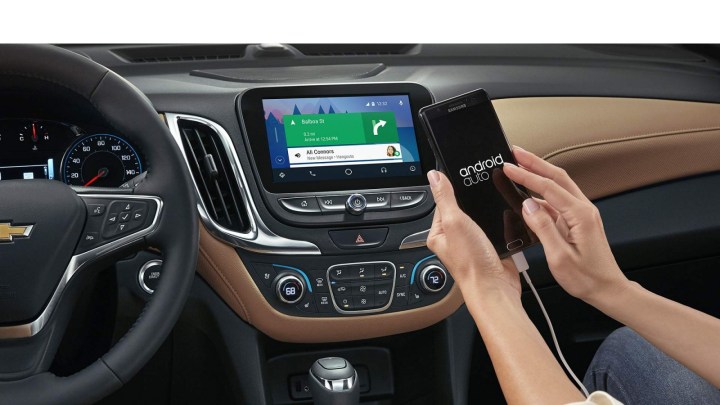
Dragon Drive is essentially Nuance’s vision for a unified smart home, smart car, and smartphone integration that allows users to have far more immersive connectivity when driving around. The idea is to use A.I. to offer drivers and passengers more personalized experiences.
Nuance’s systems are already found on more than 200 million cars on the road today, spanning 40 languages, in known brands like Audi, BMW, Daimler (Mercedes-Benz), Fiat, Ford, General Motors, Toyota, Hyundai, SAIC, and plenty more.
For instance, Dragon Drive has adaptive capabilities where it “learns” the preferences of individuals by habits. Thus, it adjusts settings for in-car functions like the entertainment system, the sat-nav and points of interest, live news feeds, and other in-car functions like heating and air conditioning. It also offers multi-passenger interaction by utilizing voice biometrics and advanced audio processing to recognize different passengers. So when one occupant expresses discomfort in saying the interior is too hot or too cold, Dragon Drive will adjust their climate control individually to compensate, without affecting any of the other occupants — as long as multi-zone climate control is equipped in the vehicle.
So if you’re familiar with the convenience and memory saving capabilities for drivers and individual occupants found in vehicles like the Mercedes-Benz S-Class, you can thank Nuance for such features. It can adjust many parameters of the car by habit and use, and saves the preferences according to whoever’s driving.
Nuance’s latest systems specifically boast the use of A.I., which is said to offer a new and unprecedented level of personalization.For example, Dragon Drive offers “gaze detection,” which allows drivers to interact and gain information on places outside the car just by looking at them.
Drive by a restaurant that just opened a few towns over? The Dragon Drive system will detect your interest and inform you accordingly on your integrated smart network.
Dragon Drive also functions as a personal assistant, offering drivers up-to-date information regarding their car ownership. Need to check on the status of your car lease or utility bills at home? No need to be in front of a computer, tablet, or smartphone, as Dragon Drive provides such information wherever you go, so that you’re always in the know.
“The car is quickly rising to become the leading A.I. platform, especially with the future of connected and autonomous vehicles upon us,” said Arnd Weil, senior vice president, automotive, Nuance Mobile. “Utilizing a combination of conversational A.I. with in-car sensors and data, we’re able to create greater awareness, understanding, and ultimately intelligence for the automotive assistant, creating a truly holistic and seamless user experience for drivers.”
Nuance will be displaying its latest developments in a fitted Chrysler Pacifica at this year’s Consumer Electronics Show in Las Vegas.


